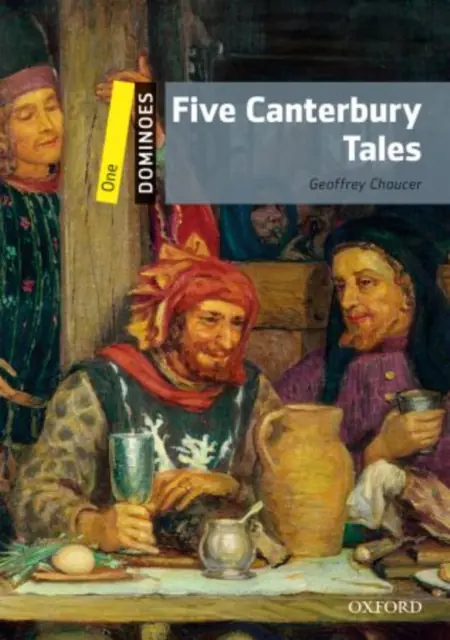Stan książek
Nasze książki są dokładnie sprawdzone i jasno określamy stan każdej z nich.






Nowa
Książka nowa.





Używany - jak nowa
Niezauważalne lub prawie niezauważalne ślady używania. Książkę ciężko odróżnić od nowej pozycji.





Używany - dobry
Normalne ślady używania wynikające z kartkowania podczas czytania, brak większych uszkodzeń lub zagięć.





Używany - widoczne ślady użytkowania
zagięte rogi, przyniszczona okładka, książka posiada wszystkie strony.
Dominoes One Five Canterbury Tales
Masz tę lub inne książki?
Sprzedaj je u nas
The narrative unfolds in the year 1386, just as the first signs of spring grace the landscape. A varied group of pilgrims embarks on a journey to Canterbury, each motivated by the wish to honor the shrine of Saint Thomas Becket. As they travel, they captivate one another with a collection of fascinating tales. These stories explore themes such as the balance of power within marriage, questioning whether the husband or wife holds greater influence. Another tale delves into the conflict between two men who compete in a romantic rivalry, both seeking the love of the same woman. These engaging narratives are among five enchanting stories crafted by Geoffrey Chaucer.
Wybierz stan zużycia:
WIĘCEJ O SKALI
The narrative unfolds in the year 1386, just as the first signs of spring grace the landscape. A varied group of pilgrims embarks on a journey to Canterbury, each motivated by the wish to honor the shrine of Saint Thomas Becket. As they travel, they captivate one another with a collection of fascinating tales. These stories explore themes such as the balance of power within marriage, questioning whether the husband or wife holds greater influence. Another tale delves into the conflict between two men who compete in a romantic rivalry, both seeking the love of the same woman. These engaging narratives are among five enchanting stories crafted by Geoffrey Chaucer.
















